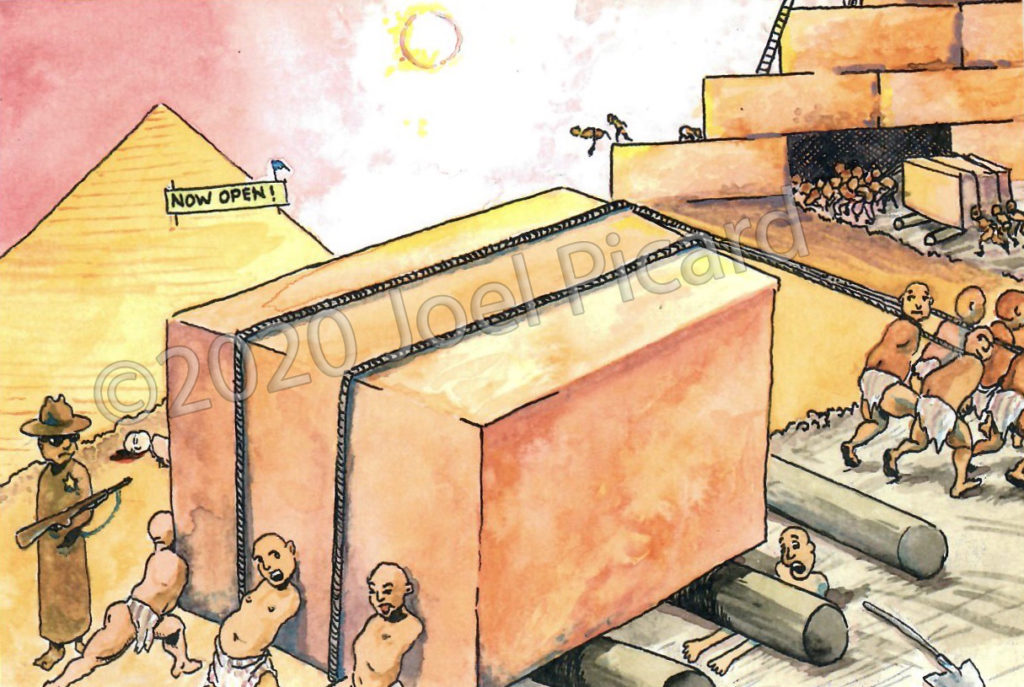Exodus 1

“I’ll tell ya what I got in mind; a couple more years of this grunt work, and then I’m gonna Stricklands out on my own. Maybe open a little coffee shop or a bookstore–be my own boss. Then, who knows? Maybe a whole chain of stores! An empire!
“Aw, who am I kiddin’. I’m a slave. I’ll always be a slave, just like my father, and his father before him.”
The children of Israel went down to Egypt with names: Reuben and Simeon, Levi and Judah, Issachar, Zebulun, Benjamin, Dan, Naphtali, Gad, Asher. But they lost their names down in Egypt. A king arose in Egypt who knew not the name nor fame of Joseph. And so, they were made slaves. And they weren’t called by name. They were called, “boy.” They were each just a number; a virtual non-person.
But the narrator of the book of Exodus turns the tables on this arrangement. The storyteller refers to the king of Egypt but deprives him of a name, so that we don’t even know under what Pharaoh the Exodus took place. Instead, two obscure midwives are named.
The Bible turns history on its head. The victim is resurrected. The obscure man comes to be valued above all of the so-called movers and shakers. In Jesus’ story of the rich man and Lazarus, we notice, tellingly, that the rich man is not even named, while the poor man, Lazarus, is. (Luke 16:19-31)
The book of Exodus begins auspiciously with a listing of the names of the sons of Jacob who went down to Egypt; a powerful reminder that these now obscure slaves were once men with names, intimating as well that slavery and obscurity is not their original or natural state. They were not born slaves and are not destined to always be slaves. Hidden in the reality of their lost identities is the suggestion of a possible redemption.
Man, in the beginning, was created by God, good and free. That fact alone tantalizes us with the possibility of a miraculous return to the place we once held.
“He calls his own sheep by name and leads them out.” John 10:3
©2020 Joel Picard